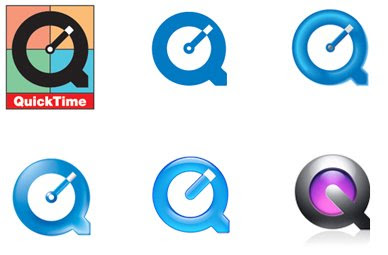
Apple has patched security vulnerabilities in the Windows version of its QuickTime media player that allowed malicious video files to execute arbitrary code.
The entertainment goliath said version 7.7.5 of QuickTime will fix 10 serious bugs that can be exploited to crash the software or pull off remote-code execution on Windows 7, Vista and XP PCs. The holes were reported by researchers at Microsoft, iDefense VCP, Tencent Security Team and others through HP's Zero Day Initiative:
http://support.apple.com/kb/HT6151According to Apple, the bugs are:
- An uninitialized pointer issue existed in the handling of track lists.
- A buffer overflow existed in the handling of H.264 encoded movie files.
- An out of bounds byte swapping issue existed in the handling of QuickTime image descriptions.
- A signedness issue existed in the handling of 'stsz' atoms.
- A buffer overflow existed in the handling of 'ftab' atoms.
- A memory corruption issue existed in the handling of 'dref' atoms.
- A buffer overflow existed in the handling of 'ldat' atoms.
- A buffer overflow existed in the handling of PSD images.
- An out of bounds byte swapping issue existed in the handling of 'ttfo' elements.
- A buffer overflow existed in the handling of 'clef' atoms.
Malware could end up on a vulnerable machine if the user visits a drive-by-download website that hosts a specially crafted movie; the QT player would open the file, triggering a bug and executing code to install software nasties.
The updates can be obtained through the Apple Software Update tool or from the company's security downloads page. Apple did not report any attacks in the wild targeting the flaws: http://support.apple.com/downloads/The Cupertino giant also released an update for its iTunes application on Windows. The 11.1.5 release remedies a stability issue that could cause a crash when devices are plugged into the machine, and fixes a flaw in the handling of Japanese text in the iTunes store.
The updates will only apply to Windows users, Apple having already given OS X owners plenty of patches to install already.
Earlier this week the company responded to public outcry by rushing out a fix for a high-profile flaw in an OS X Mavericks SSL library that rendered some encrypted connections, including those in Mail and the Safari web browser, vulnerable to a man-in-the-middle attack scenario in which information could be intercepted and decrypted by a third party.
Making matters worse, the security flaw only came to light after Apple first addressed the same bug in an update for the iOS mobile platform days earlier.
(ElReg)